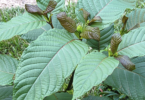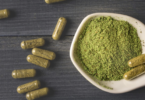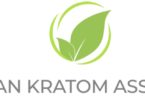Botanical Education Alliance’s Statement in Response to FDA’s Health Advisory Concerning Kratom
We DO NOT support the FDA’s contention that kratom is an “unapproved drug” with regard to the kratom products that are currently in the market place.
The FDA reports that the agency has “exercised jurisdiction over kratom as an unapproved drug.” Language from the agency over the past three years, though, indicates that the FDA views kratom as a dietary supplement. Kratom is a plant leaf from a tree indigenous to Southeast Asia. It is in the coffee family and can be used to promote general well-being. It not a synthetic drug nor is it an opioid.
See the Original Red Alert: https://www.accessdata.fda.gov/cms_ia/importalert_1137.html. In fact one company has submitted their New Dietary Ingredient notification with full safety data.
We DO NOT support the FDA’s statement that there are “significant safety issues associated with [kratom’s] use,” nor do we agree with the claim that kratom was the cause of recent deaths.
Dr. Sawyer, a renowned Toxicologist reviewed the deaths up until September 2016 and his conclusion was that not one of the deaths could be attributed to Kratom. We plan to conduct a full review of all alleged deaths from September 2016 until present date to show that most involved other drugs and could not be attributed to Kratom alone.
From the FDA’s Health Advisory: “Calls to U.S. poison control centers regarding kratom have increased 10-fold from 2010 to 2015, with hundreds of calls made each year.”
A CDC study of 660 “case mentions” of kratom falsely indicates “significant safety issues” with the plant. These “case mentions” are situations in which kratom was mentioned. They do not mean that kratom was solely responsible for the call to poison control.
With the help of the CDC report, we have crunched the numbers to discover how pervasive kratom cases are within the National Poison Data System. We compared the CDC kratom statistics with the total number of poison calls recorded each year, as shown in the 2014 Annual Report of the American Association of Poison Control Centers.
Below we have the graph from the kratom CDC report for calls per year:
Here we have the calculated the data by dividing the total number of kratom-related case mentions per year with the total number of all poison related calls in the NPDS per year.
Each Year
Total Number of Kratom Related Poison Calls*
Total Number of Poison Related Calls
Percentage of Kratom Related Poison Calls
2010
26
2 384 825
0.001%
2011
15
2 334 004
0.0006%
2012
98
2 275 141
0.004%
2013
108
2 188 013
0.005%
2014
155
2 165 142
0.007%
*Total Number of Kratom Related Poison Calls is an approximation of the CDC graph seen above
The percentage of calls to poison centers from 2010-2014 regarding Kratom constituted only 0.004% of total calls (rounded from 0.0035%). While kratom-related calls have increased since 2010, they clearly do not come in at a frequency that would indicate a “significant safety issue.”
Kratom doesn’t kill people, and to date there has not been one death attributed to kratom alone. The FDA claims that they are “aware of reports of 36 deaths associated with the use of kratom-containing products.” But, evidence indicates that these deaths were not caused by kratom:
“The most recent (2014) information collected by the U.S. National Poison Data System, and published in the journal Clinical Toxicology, shows no deaths whatsoever from dietary supplements across the board or any other dietary ingredient.”
All documented kratom-related deaths can be attributed to poly drug use, where substances – including prescription pharmaceuticals as well as illicit drugs – other than kratom were also found during the autopsy.
Also if we look to a world expert in this field such as Dr. Steven Karch’s book on the subject of forensic studies you will find that it is extremely difficult to attribute the cause death for an individual when they have multiple products in their system.
“You can die from a drug and you can die with a drug,” says Karch. “When you have four orders of magnitude separating either end of the curve, many of these deaths may not have to do with drugs at all.”
To further this point “A second complication in cause-of-death findings is what medical examiners call “postmortem redistribution” which is the shift in detectable drug levels that occurs after a person dies, according to Fred Apple, medical director of clinical laboratories for the Hennepin County Medical Center in Minnesota. Many drugs that may be contained in fatty tissue in a living body are released into bodily fluids after death, which confuses the analysis of substance samples taken postmortem”.
Scientific study has proven that mitragynine will not cause respiratory depression, which is how most opiate overdose deaths occur.
In 2013, Scientific American asked Edward Boyer, a professor of emergency medicine and director of medical toxicology at the University of Massachusetts Medical School, took a look at whether kratom should be deemed dangerous. His answer illustrates a key difference between kratom and opioids: “When you overdose on these drugs (classic opioids like hydrocodone), your respiratory rate drops to zero. In animal studies where rats were given mitragynine, those rats had no respiratory depression.”
The BEA believes the FDA should have presented this information in the form of a notice to companies in violation of regulations. We support the FDA sending notices to companies that are making therapeutic and drug claims about kratom products.
The recent Health Advisory states: “The FDA knows people are using kratom to treat conditions like pain, anxiety and depression, which are serious medical conditions that require proper diagnosis and oversight from a licensed health care provider. We also know that this substance is being actively marketed and distributed for these purposes.”
The Botanical Education Alliance supports the proper labeling and marketing of kratom products.
Companies that have product names related to drugs and claims that Kratom treats or cures any disease must cease and desist immediately as in any industry we are only as good as our least ethical product.
Our organization is committed to ensuring a responsible kratom industry that prioritizes the health and safety of consumers.







